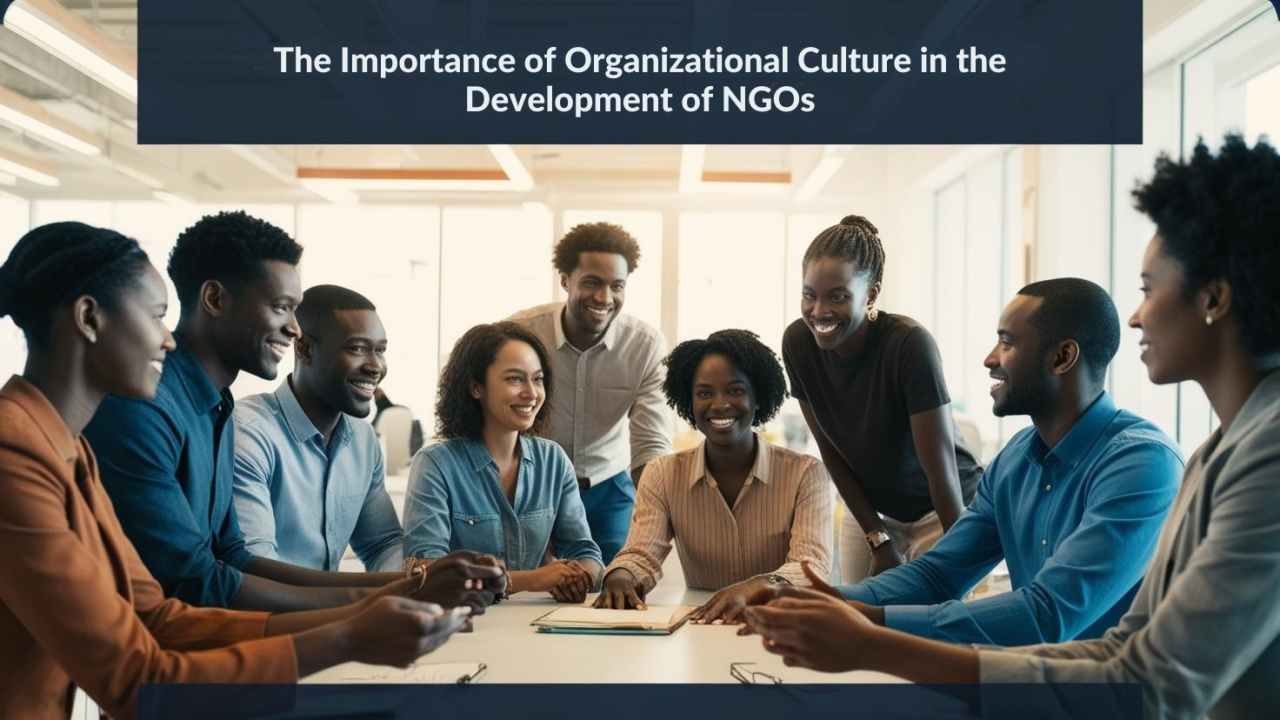
Leonardo Cunha
Leonardo Cunha
Leadership | Entrepreneurship | Management | Planning | Strategy | Writing for Finance | Development finance expert | International speaker
29 March 2025
Organisational culture plays a pivotal role in shaping the identity, sustainability, and social impact of non-governmental organisations (NGOs). Rooted in shared values, practices, and norms, it influences how teams collaborate, adapt to challenges, and achieve long-term goals. Drawing on academic research, this article explores how organisational culture drives NGO success and provides actionable strategies for fostering resilient cultural frameworks.
Why Organisational Culture Matters for NGOs
- Alignment of Mission and Practice A cohesive organisational culture ensures that an NGO's mission, vision, and values translate into daily practices. For example, Lewis (2003) highlights how fragmented organisational cultures in multi-agency projects-such as a sericulture initiative in Bangladesh-led to sustainability challenges, as conflicting priorities among stakeholders eroded initial project coherence. When culture aligns with purpose, NGOs can maintain focus despite external pressures.
- Employee Engagement and Retention A strong culture fosters motivation and loyalty. Research on public organisations shows that cultures emphasizing collaboration and recognition reduce turnover and enhance productivity (Antoniadou et al., 2022)5. In NGOs, where resources are often limited, retaining skilled staff is critical for continuity.
- Adaptability and Resilience NGOs operate in dynamic environments, requiring flexibility to address crises or shifting donor priorities. Studies on garment manufacturing industries reveal that cultures valuing innovation and learning enable organisations to pivot effectively during disruptions (Sharma et al., 2021). For NGOs, this adaptability is vital for sustaining programmes in volatile contexts.
- Trust and Reputation A transparent, ethical culture strengthens an NGO's credibility with donors, beneficiaries, and partners. Scandals in international NGOs (INGOs)-such as mismanagement or ethical breaches-often stem from cultural weaknesses, where compliance mechanisms fail to align with stated values (De Waal & Bracking, 2020)4. Consistent cultural integrity builds long-term trust.
Challenges in Building NGO Organisational Culture
- Fragmentation in Multi-Agency Collaborations NGOs frequently collaborate with governments, donors, and grassroots groups, creating complex cultural dynamics. Lewis (2003) notes that differing priorities among stakeholders can fragment project goals, as seen in Bangladeshi development programmes where "initial project meanings gradually fragmented over time". Managing these disparities requires intentional dialogue and shared frameworks.
- Power Imbalances Hierarchical structures or donor-driven agendas can suppress local voices. For instance, World Bank-funded projects in Bangladesh often prioritised textual commitments to "empowerment" over grassroots input, leading to mismatched outcomes (Lewis, 2003)1. Empowering frontline staff and beneficiaries to shape culture mitigates this risk.
- Resource Constraints Limited funding often forces NGOs to prioritise short-term outputs over long-term cultural investments. However, studies on Mexican NGOs show that organisations with strong internal cultures-such as transparency and stakeholder engagement-achieve more sustainable partnerships (González & Martínez, 2020).
Strategies for Strengthening NGO Culture
- Define Core Values Collaboratively Involve staff, beneficiaries, and partners in articulating mission-driven values. For example, Peruvian NGOs that integrated indigenous knowledge into agricultural projects achieved better community buy-in by respecting local cultural practices.
- Foster Inclusive Leadership Leaders must model cultural values through actions. A study on Greek public administration found that leaders who promoted teamwork and open communication improved organisational performance by 23% (Antoniadou et al., 2022).
- Invest in Capacity Building Training programmes on ethics, communication, and adaptive management help embed cultural norms. NGOs in Jordan improved project success rates by aligning capacity-building initiatives with cultural priorities (Al-Haddad et al., 2021).
- Monitor and Adapt Use metrics like staff satisfaction surveys or beneficiary feedback to assess cultural health. The garment industry's shift towards sustainability was driven by continuous cultural audits (Sharma et al., 2021).
Organisational culture is not a static artifact but a dynamic process shaped by context, power, and practice. For NGOs, cultivating a culture of inclusivity, adaptability, and ethical accountability is essential for achieving sustainable impact. By learning from case studies and integrating academic insights, NGOs can transform cultural challenges into opportunities for growth.
References
- Lewis, D. (2003). NGOs, Organisational Culture, and Institutional Sustainability. The ANNALS of the American Academy of Political and Social Science, 590(1), 212-226. https://doi.org/10.1177/0002716203257083
- Al-Haddad, S., Alnajdawi, S., & Eletter, S. (2021). Factors affecting the success of development projects of the non-governmental organisations (NGOs) in Jordan. Journal of International Development, 33(5), 789-812.
- Antoniadou, M., Niakas, D., & Zygiaris, S. (2022). The Impact of Strong Cultures on Organisational Performance in Public Organisations: The Case of the Greek Public Administration. Social Sciences, 11(10), 486. https://doi.org/10.3390/socsci11100486
- De Waal, A., & Bracking, S. (2020). "Culture Is What You See When Compliance Is Not in the Room": Organisational Culture as an Explanatory Factor in Analyzing Recent INGO Scandals. Nonprofit Policy Forum, 11(4). https://doi.org/10.1515/npf-2019-0031
- González, R. A., & Martínez, C. I. (2020). The Effects of Organisational Traits on NGO-Business Engagement in Mexico. Sustainability, 12(23), 10108. https://doi.org/10.3390/su122310108
- Sharma, A., Dwivedi, P., & Kushwaha, G. (2021). The role of organisational culture in organisational change towards sustainability: evidence from the garment manufacturing industry. Production Planning & Control, 32(12), 1024-1040. https://doi.org/10.1080/09537287.2021.1913524
- Lewis, D. (2002). Practice, power and meaning: Frameworks for studying organisational culture in multi-agency rural development projects. Journal of International Development, 14(6), 725-739.
- Academia.edu. (2021). Understanding the role of cultural knowledge in agricultural rural development projects. Journal of Development Studies, 57(3), 1-15.


